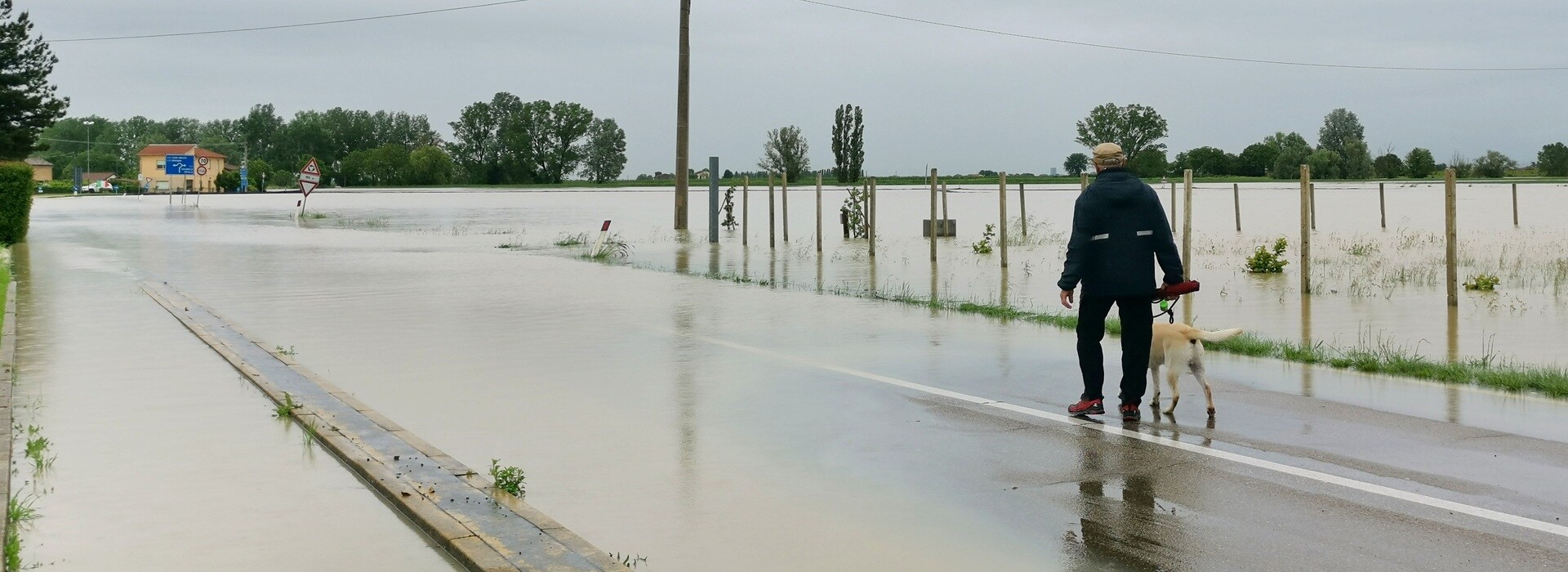Megatrend: Globalisation 2.0
Globalisation needs intelligent solutions
This article feautures
Globalisation connects countries through trade and cultural exchange, facilitating the worldwide movement of goods and people and intensifying economic cooperation. However, it also brings challenges such as job relocation. Markets and cultures are merging into a complex global network, while decoupling processes threaten existing alliances. To respond to these changes, global presence is strengthened through local adaptations. The "region-for-region" approach helps address regional needs, with locations in Germany, the USA, and China enabling quick responses.
The Dimensions of Decoupling
International cooperation is declining, alliances are crumbling, and economic bridges between nations are being torn down — decoupling is one of the greatest entrepreneurial challenges of our time. It impacts business and society on four levels and demands decisive entrepreneurial action:
Geographic. Technological. Financial. Ecological.

Geographic Decoupling
Geographic decoupling describes the politically motivated isolation of countries. This makes it harder for companies to engage in cross-border economic activities. As a result, pressure on supply chains and organizational structures increases.
Think global, act local
To address the challenges caused by global trends toward geographic decoupling, Wilo pursues a consistent “region-for-region” approach. With the strategy of allowing as much decentralisation as possible and as much centralisation as necessary, the company strengthens its resilience and crisis resistance.
Major Competitors
The most important geostrategic conflict worldwide is the rivalry between China and the USA. The world’s largest economies rely partly on isolation and confrontation but are also economically deeply intertwined. Excessive market decoupling would lead to wealth losses on both sides.
16 Main Production Sites
Wilo continuously increases its internal manufacturing depth and thus its value creation. The company currently produces in 16 Green Fabs worldwide, which will be expanded with additional locations in the coming years. This secures Wilo’s supply of production-relevant critical components and ensures intact supply chains.
Combining Strengths
In Cedarburg near Chicago, Wilo has consolidated its three subsidiaries Scot Pump, Weil Pump, and Wilo USA into a new facility. The “Cedarburg Campus” covers around 23,000 square metres and includes production, administration, a research and development department, a training centre, as well as storage and logistics facilities.
Reliable, Fast, Efficient
For the new wafer plant of chip manufacturer Infineon in Dresden, Wilo delivered seven IL pumps. They are part of the internal cooling water network necessary to produce the wafer-thin discs that are an indispensable foundation for chip production. Wilo received this important order partly because the company was able to deliver the pumps in little more than half the usual delivery time.

Technological Decoupling
In more and more markets, different standards apply to products, systems, and solutions - especially for smart and intelligent products that use and exchange data.
Different Markets, Different Standards
Wilo develops products, systems, and solutions that are already compatible with a wide variety of standards. In addition, Wilo is decentralising not only production and administration but also its research and development areas. This will enable the company to react even faster and more flexibly in the future to meet customer needs precisely and tackle challenges arising from technological decoupling.
Cloud Horizons
In the field of data-driven digital technologies, communicable standards are necessary for systems to interact across national borders. Isolation resulting from technological decoupling can lead to high follow-up costs for internationally operating companies or prevent them from succeeding in projects.
Adaptability
Wilo adapts its products, solutions, and services to numerous different requirements. This overcomes the new, virtual boundaries of technological decoupling. Wilo pumps not only meet the required regional standards but are also capable of working with different cloud systems. This applies, for example, to the Wilo-Live Assistant. This digital and mobile service is now in use in more than 50 countries.

Financial Decoupling
Financial decoupling means that networks of global financial and capital markets, as well as currency and operational payment systems, are being separated. This can reduce overall economic growth.
Local Partner
Through targeted investments, Wilo creates the conditions to participate in the growth potential of various markets worldwide. Against the backdrop of possible financial decoupling, Wilo is very well positioned with its comprehensive network of global and local financial partners.
Competent, Individual, Trustworthy
Following the “region-for-region” approach, Wilo relies increasingly on local, experienced partners for financing solutions in project business who are familiar with the economic, legal, and cultural frameworks of each country. These investments are supported by a well-established network of international banks and financing partners. The Wilo Group can also draw on long-term, global financing agreements. Additionally, local financing frameworks adapted to individual circumstances are available in subsidiaries on-site.

Ecological Decoupling
Ecological decoupling describes the situation where there are no uniform international regulations for sustainable behaviour. This distorts competition and can lead to partial relocation of companies to countries that place less value on climate protection.
Extreme Weather, Clean Solutions
Climate protection is part of Wilo’s business model. Managing the precious resources of water and energy requires sustainable thinking and action. Wilo consistently pursues a global sustainability strategy. To achieve its set goals, Wilo supports local climate protection initiatives and national Green Deals.
Too Dry – Too Wet
Depending on the world region, climate change shows very different effects — but the causes are the same. They can only be tackled globally and across borders. If ecological decoupling results in only local, uncoordinated activities and climate protection becomes a competitive disadvantage in some areas, climate change will no longer be effectively curbed.
Hydrogen Pilot Project
A pilot project to explore the potential of hydrogen for sustainable energy supply has been established at Wilopark. “Hydrogen technologies and systems have been defined as a value chain of strategic interest,” said Oliver Hermes, President and Global CEO of the Wilo Group. “Thus, Wilo’s services are also system-relevant here. In the future, our products and systems will make an essential contribution to the production, distribution, and use of climate-neutral hydrogen.”
An Outstanding Success
Egypt’s Toshka Project is a century-scale undertaking comparable to the Aswan Dam: the largest pump station in the world diverts millions of cubic metres of water daily to make the desert fertile and relieve the overcrowded Nile Valley. Wilo supplied around 400 pumps. For the Wilo subsidiary in Egypt, founded only in 2016, this major order is an outstanding success.











